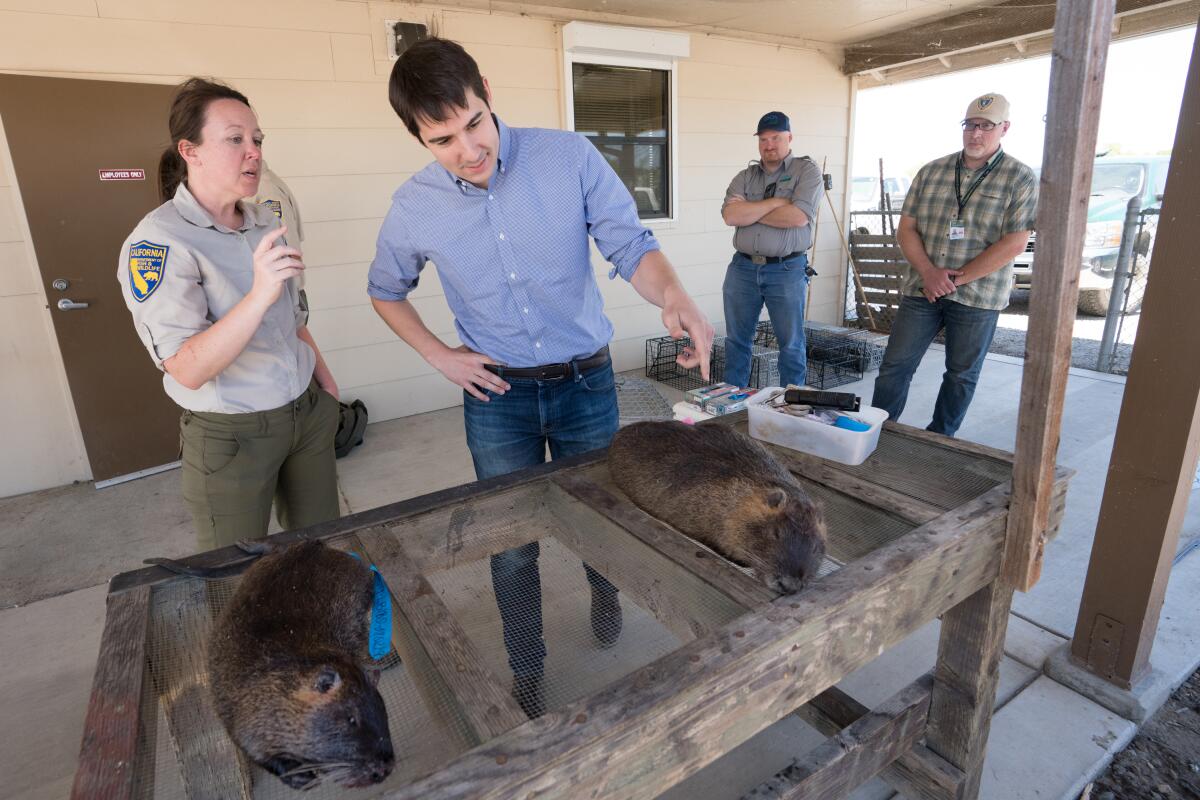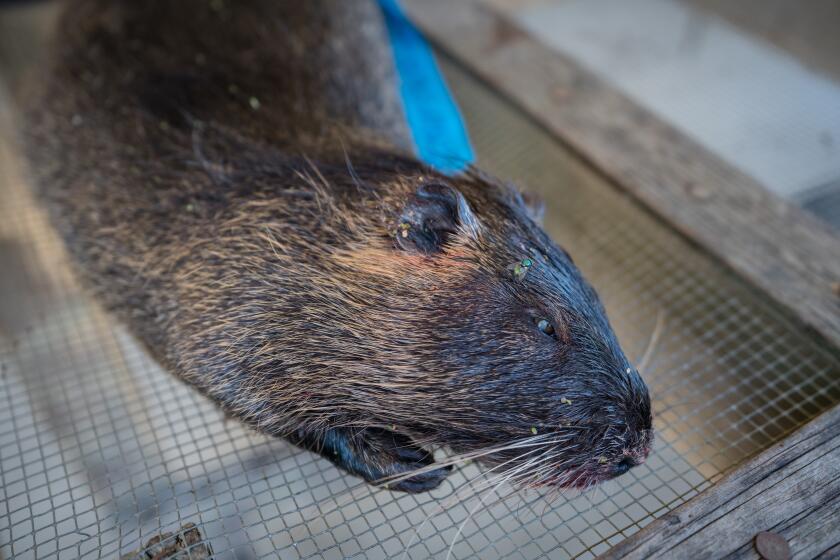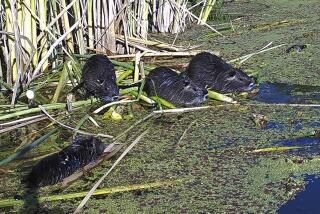House passes bill to help eradicate swamp rats invading California and other states

- Share via
WASHINGTON — A measure to help eradicate the invasive rodents called nutria has passed the U.S. House with the help of a large, stuffed specimen.
California Rep. Josh Harder (D-Turlock) brought a taxidermied nutria he calls Nellie to the House floor Wednesday ahead of a vote that approved the bill, the Modesto Bee reported.
Nutria are native to South America and spread across the United States in the 20th century after being introduced as a source of fur for coats and hats. California declared them eradicated in the 1970s, but the semi-aquatic rodents have since made a rebound.
California’s latest infestation was confirmed in early 2017. State and federal agencies have warned that explosive population growth combined with California’s reliance on expansive waterways connected to the Sacramento-San Joaquin River Delta make the state especially vulnerable.
Opponents have painted Democratic Rep. Josh Harder of Turlock as a Bay Area carpetbagger backed by San Francisco elites and tech moguls. The perfect project to combat that image is taking on the nutria, an invasive swamp rat that threatens to damage levees and eat through Central Valley wetlands.
Rep. Garret Graves (R-La.) co-sponsored the legislation with Harder. It would support making $12 million available each year until 2025 to about a dozen states battling the invasion of the rodent, news outlets reported.
“Nearly 4.5 million people live in Louisiana, yet we have an estimated 20 million nutria,” Graves said in a statement.
Louisiana recently upped the bounty it pays to hunters who kill nutria, from $5 to $6 a head. The webbed-toed, buck-toothed rodents are sometimes called swamp rats because of their naked-looking tails but are more closely related to guinea pigs. They can grow up to 25 pounds and contribute to erosion by burrowing in land and eating marshland plants, including the roots. They eat 25% of their own weight in plants each day, and can kill trees by gnawing away a ring of bark.
California allocated $10 million in state money last year to fight its nutria population, according to the Bee. Officials used the money to put together a team of 40 employees tasked with driving down the number of the rodents.
More to Read
Sign up for Essential California
The most important California stories and recommendations in your inbox every morning.
You may occasionally receive promotional content from the Los Angeles Times.












